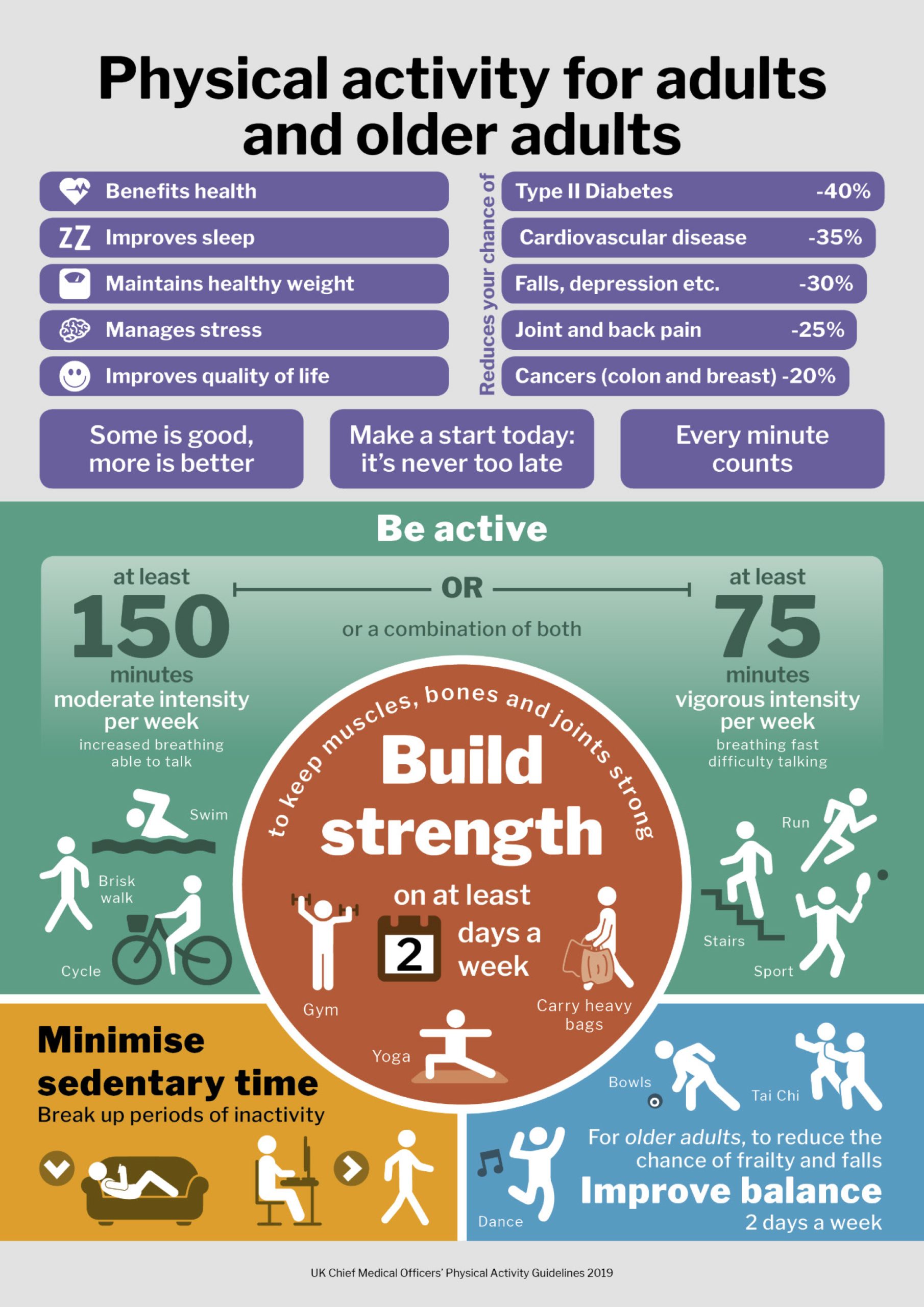We recognise that everyone is different, including your level of health and fitness. At the point of cancer diagnosis some individuals will have a high level of fitness, others a low level, and most somewhere in between. We want to ensure that regardless of your level, you start your cancer treatment as fit and as healthy as possible.
Look at the statements below and consider which best describes you:
- I don’t move very much. I walk less than 15 minutes a day
- I exercise once a week – about 30 minutes a week, I can feel that my breathing rate and heart rate increases because I am working harder to move my body
- I exercise frequently – for 30 minutes at least 3 x a week, I can feel that my breathing rate and heart rate increases because I am working harder to move my body
If you were a 1 or 2, consider start with small increases in activity and increase this as you feel comfortable.
Prehab in your area may include the following support:
- Access to a range of leisure centres and pools across the county
- Pre-recorded online video content available on this website
- Use of other exercise videos online.
Exercise will help you build up your cardiovascular fitness and strength. This shouldn't be strenuous, but enough to get your heart beating a bit faster & feeling slightly out of breath.
Activity for everyone
We are delighted to share the details of multiple exercise groups across Somerset, Wiltshire, Avon and Gloucestershire. This is to enable access to activities such as gym and swimming closer to home.
We've linked up with Cancer Care Map to help you find activities near you. Click on the Cancer Care Map logo, to access their website where you can search, using your postcode for services near you.
Activity every day
Following your diagnosis, there may be a temptation for your friends and family to do things for you. Many basic day to day activities can be a good form of gentle exercise. Exercise will help you both physically and mentally.
People may also encourage you to rest – especially if you are feeling fatigued. However, resting too much can make the fatigue worse.
It can help to think of your personal energy levels as being like your “battery”.
When you have cancer it can be harder for your battery to charge up and to hold its usual amount of charge. However, being inactive can result in the battery going flat.
Finding a helpful balance of physical activity and rest, by prioritising, planning and pacing activities, can increase the charge that your battery can hold.
If you would like to find out more about how to manage fatigue you can visit the following resources:
20-30 minutes of activity every day is a good goal. This could be a 10-15 minutes activity in the morning and then another 10-15 minutes in the afternoon. Think back to whether you consider yourself at level 1, 2 or 3 and try to gently increase your usual level of activity. You may want to increase your level of exercise as time progresses.
Your exercise could be anything from chair exercises, a gentle walk or to a Zumba class. It's about what you and your body are happy to do.
The UK Chief Medical Officer has provided the diagram below for guidance.

Getting you started with exercises
We have a number of videos to help and inspire you to get started with your exercises. Below is the first of these, introducing you to gentle walking.
There are plenty of other videos to help you along the way. Here's a link to them.

